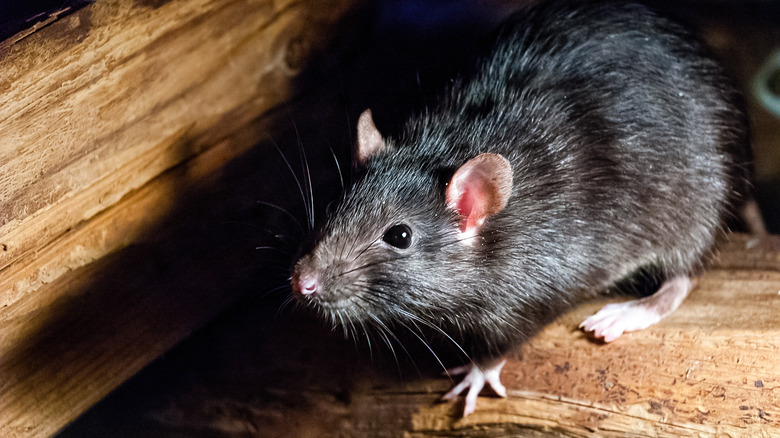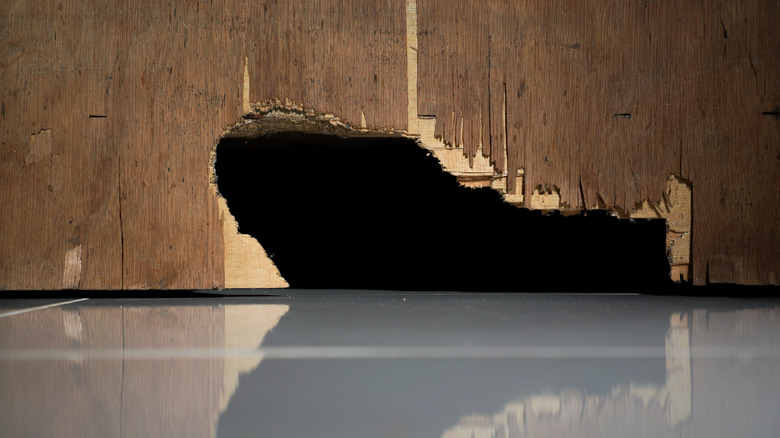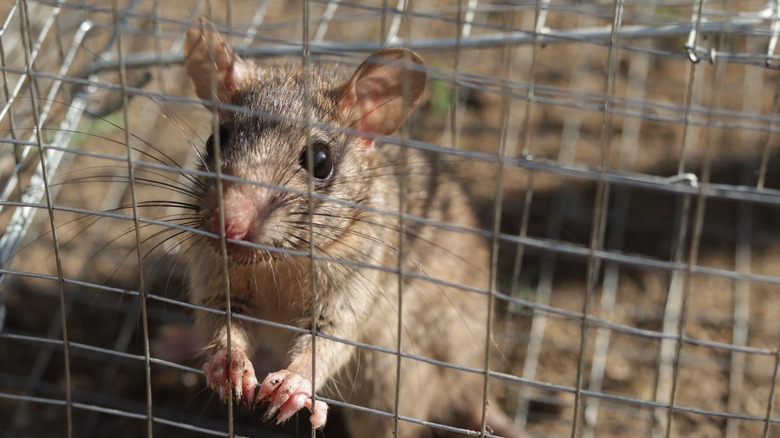The Important First Step You Need To Take If You Have A Rat Problem
Rats are crafty critters with sharp teeth that can chew through just about anything. They're like tiny escape artists, capable of slipping through the tiniest openings in their quest for food and shelter. That's why the first thing you should do when dealing with a rat issue is tackle their entry points. Sealing up those holes is a crucial starting point for keeping them out of your living spaces and breaking the cycle of infestation. Even though their eyesight isn't great, their keen noses and whiskers make them almost super-sensitive to any openings they can squeeze through.
These little tricksters know how to sneak into your home through overlooked spots like gaps around pipes, cracks in the foundation, or openings in attics and crawl spaces. If you don't seal these up right, it's like you're sending them an invitation to party inside, wrecking all your other hard work. So, make sealing up those holes your main mission. It's like putting up a "Rats, Keep Out!" sign that actually works.
How to prevent rodent intruders
To seal those entry holes tight and keep rats out, you won't need anything fancy. Just some basic stuff like steel wool, wire mesh, expanding foam, and heavy-duty sealant. The first thing to do is to give the outside of your home a look around. Check for any gaps, cracks, or holes where rats might sneak in. Keep your focus on spots around pipes, vents, and utility lines.
If you spot any small gaps, this is where you pull out your new best buddy: steel wool. Stucco, lead wires, concrete, and brick are all easy-peasy for rats to gnaw through. But steel wool throws them for a loop. For larger openings, cut some wire mesh to size and lock it in place with expanding foam or heavy-duty sealant. This combo will give those rats a real headache if they're adamant about trying to get in.
Alongside sealing up holes, you can create a natural barrier with strong scents. In theory, smells like peppermint, eucalyptus, and garlic may send rats off in the other direction. However, this theory has also been disputed. If rats live in sewers and garbage, chances are that the above scents won't do much. That said, it's still worth a try. There are all-natural rodent-repelling granules that smell like a combination of the three and may prove effective at combating the occasional curious four-legged visitor.
Keep it humane
Closing up any entry holes to keep rats out isn't just a quick fix that needs repeating on a monthly basis. It's basically like changing the locks and prevents them from nesting and making more rats for their rodent army. Plus, it makes your traps work better because you're not dealing with a never-ending rat invasion.
When it comes to traps, you might be looking toward glue, poison, or snap traps. While these might seem like a quick and easy way to deal with a few uninvited rodent visitors, they come with some serious practical and ethical concerns. Snap traps don't always get the job done and can be cruel for any animal who accidentally ends up in one. Glue traps are even worse because they immobilize rats and leave them to die of starvation.
Other critters that you weren't intending on trapping can also get stuck on them. Lastly, poison works incredibly slowly, and any rat who ingests it will die a very slow and painful death. On top of that, any animal that comes into close contact with the body will also get sick and die. That's why the smartest and most ethical method is to use a humane live trap. These traps catch rats without hurting them, so you can release them safely somewhere else. It's a more compassionate way to handle the problem, one that doesn't also put your pets and other creatures at risk.


